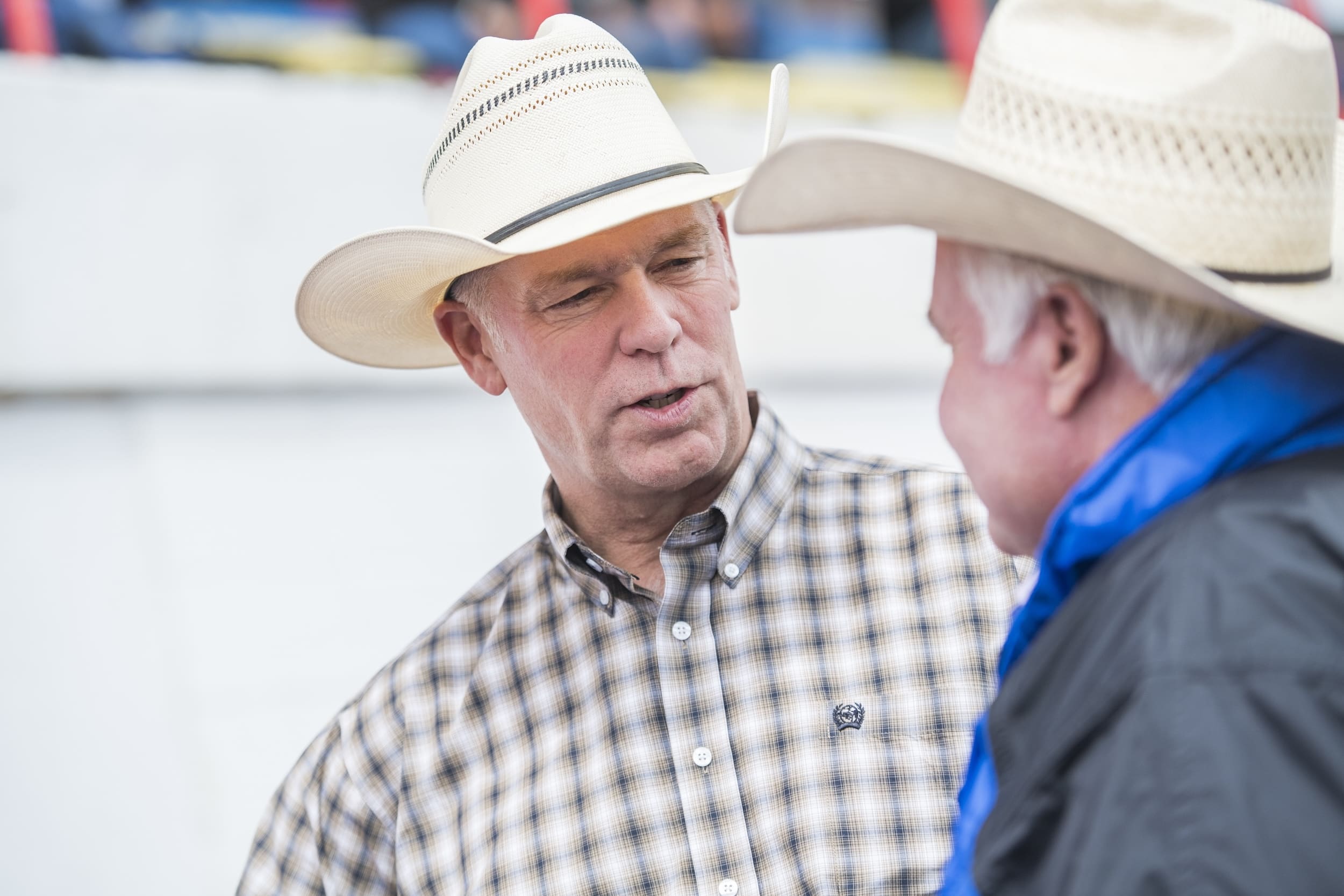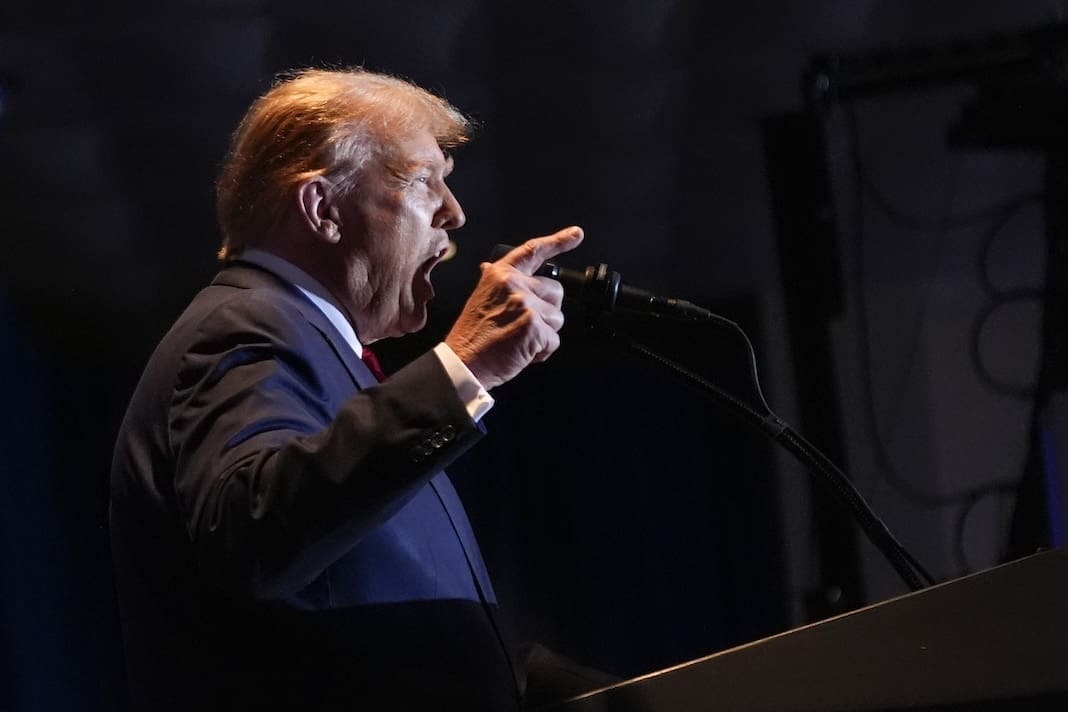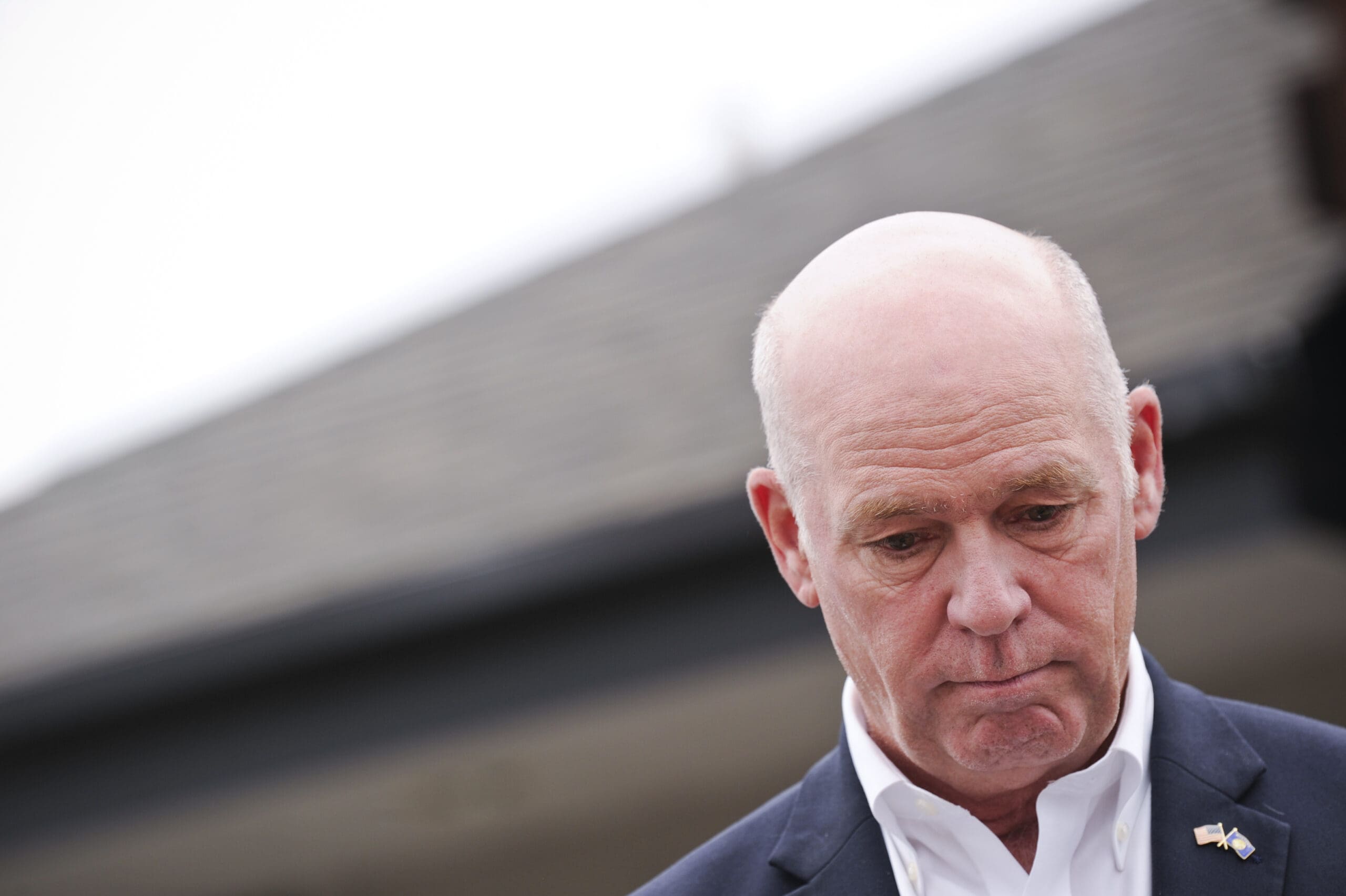Gov. Greg Gianforte stacks property tax task force with right-wing economists
The appointees are affiliated with a right-wing network with deep and long-standing ties to the Koch Brothers and ALEC, the American Legislative Exchange Council.

In January, Montana Gov. Greg Gianforte reacted to rising property taxes in the state by setting up a special task force charged with finding solutions. Among his appointees are only three economists, all from out of state. The other 20 members are Montanans, a collection of elected officials — Democrats and Republicans — and representatives of special interest groups such as the Farm Bureau Federation.
Montana has no shortage of home-grown economists. Both Montana State University and the University of Montana have departments and many faculty in the field. Yet there is a second thread connecting each of the three appointed economists that indicates where Gianforte might be headed. Each is affiliated with a right-wing network with deep and long-standing ties to the Koch Brothers and ALEC, the American Legislative Exchange Council. This, in turn, ties them to another appointee on that same task force, Kendall Cotton, who heads the Frontier Institute, also a node on the same right-wing network.
The three economists are Manish Bhatt, a senior policy analyst at the Tax Foundation; Jeremy Horpedahl, an associate professor of economics at University of Central Arkansas; and Justin Ross, a professor of economics at Indiana University. Only Bhatt is identified by the Gianforte administration as affiliated with the Tax Foundation, but both Horpedahl and Ross are also connected to it, according to that group’s website.
The Tax Foundation is an affiliate of the State Policy Network. A 2013 report by the Center for Media and Democracy traced the establishment and funding of that network to such long-standing right-wing donors as the Koch brothers, the Waltons, the Bradley Foundation, the Roe Foundation, and the Coors Family. The report said, “SPN and its affiliates push an extreme right-wing agenda that aims to privatize education, block health care reform, restrict workers’ rights, roll back environmental protections and create a tax system that benefits most those at the very top level of income.”
The Montana node on that same network is the Frontier Institute, which was founded in 2020 when Gianforte took office. The head of that group, Cotton, has become a fixture in the halls of the state Capitol during legislative sessions. The group is aggressive in public messaging lamenting the “burden” of local property taxes. For instance, it has published a series of studies purporting to show increases in local government spending that outpace population growth, implying that they are the cause of rising property taxes. They are not.
In an interview, Missoula County Commissioner Josh Slotnick called Cotton’s work misleading. Slotnick’s county’s spending has increased, but as a result of special federal grants for such one-time improvements as roads, bridges and sewers, not as a result of local taxes. Those federal grants register in the budget, but are not supported by local property taxes.
The Frontier Institute’s messaging fits with an analysis offered by former state budget officials such as Dan Bucks, who has said he believes the current property tax crisis is an attempt to undermine local government. A perceived crisis is the wedge that allows a shift of taxes in the direction favored by groups such as the State Policy Network. In fact, in a podcast meant for that audience, Cotton himself lent some credence to that fear.
The summary of the interview published by the Mackinac Center for Public Policy, a key player in the State Policy Network, said: “Cotton summarized Gov. Greg Gianforte’s approach: ‘We don’t need to try for a Hail Mary every single time. Let’s just focus on the five yard wins, and incrementally over time, we’re going to completely transform the state into a much better place to live.’”



